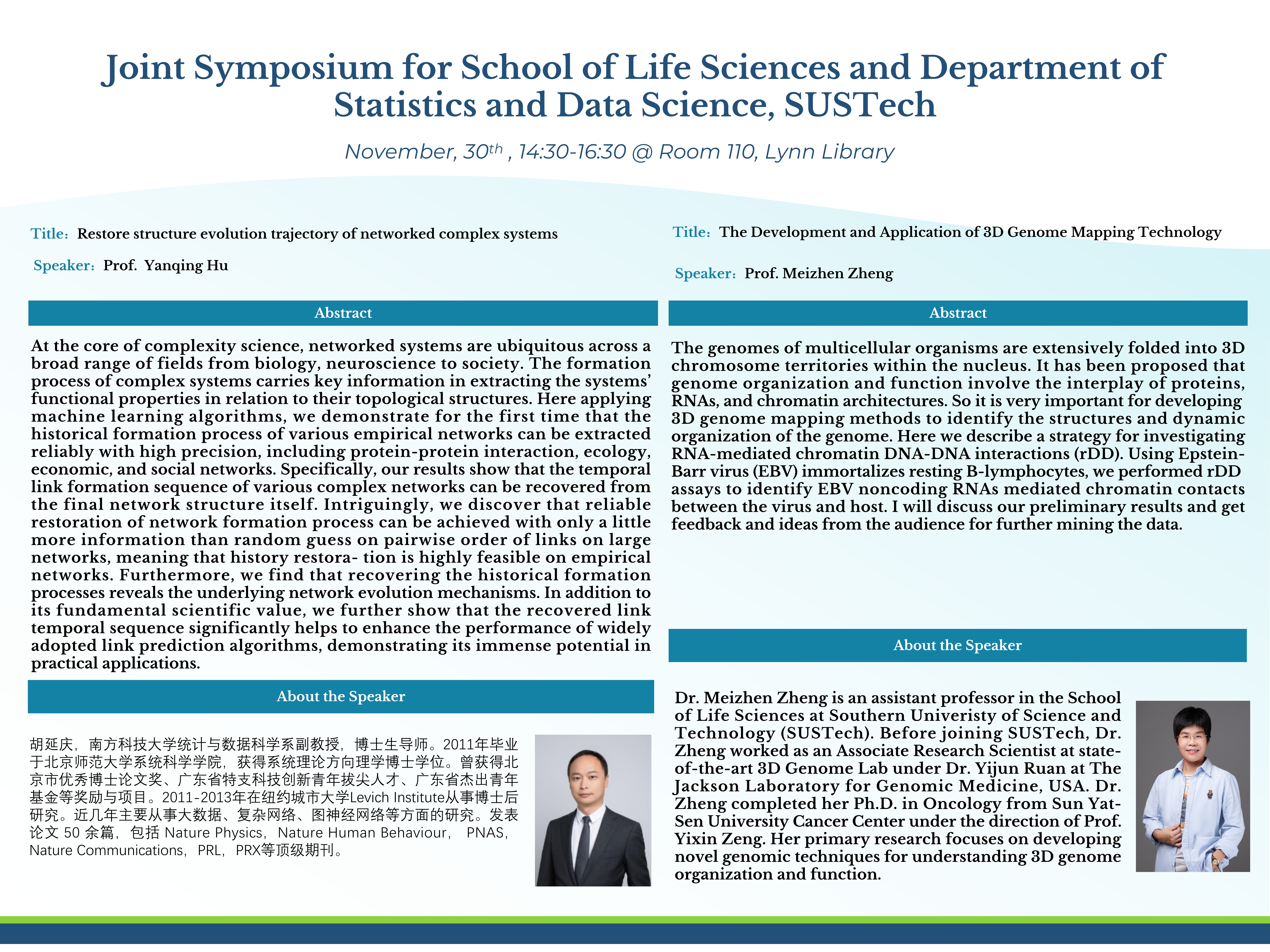
主讲人: 胡延庆、郑梅珍
时间: 2022年11月30日,14:30-16:30
地点: 琳恩图书馆110报告厅
时 间:2022年11月30日,14:30-16:30
地 点:琳恩图书馆110报告厅
报告一:
题 目: Restore structure evolution trajectory of networked complex systems
主 讲:胡延庆 副教授
摘要:
At the core of complexity science, networked systems are ubiquitous across a broad range of fields from biology, neuroscience to society. The formation process of complex systems carries key information in extracting the systems’ functional properties in relation to their topological structures. Here applying machine learning algorithms, we demonstrate for the first time that the historical formation process of various empirical networks can be extracted reliably with high precision, including protein-protein interaction, ecology, economic, and social networks. Specifically, our results show that the temporal link formation sequence of various complex networks can be recovered from the final network structure itself. Intriguingly, we discover that reliable restoration of network formation process can be achieved with only a little more information than random guess on pairwise order of links on large networks, meaning that history restora- tion is highly feasible on empirical networks. Furthermore, we find that recovering the historical formation processes reveals the underlying network evolution mechanisms. In addition to its fundamental scientific value, we further show that the recovered link temporal sequence significantly helps to enhance the performance of widely adopted link prediction algorithms, demonstrating its immense potential in practical applications.
报告二:
题 目: The Development and Application of 3D Genome Mapping Technology
主 讲:郑梅珍 助理教授
摘要:
The genomes of multicellular organisms are extensively folded into 3D chromosome territories within the nucleus. It has been proposed that genome organization and function involve the interplay of proteins, RNAs, and chromatin architectures. So it is very important for developing 3D genome mapping methods to identify the structures and dynamic organization of the genome. Here we describe a strategy for investigating RNA-mediated chromatin DNA-DNA interactions (rDD). Using Epstein-Barr virus (EBV) immortalizes resting B-lymphocytes, we performed rDD assays to identify EBV noncoding RNAs mediated chromatin contacts between the virus and host. I will discuss our preliminary results and get feedback and ideas from the audience for further mining the data.